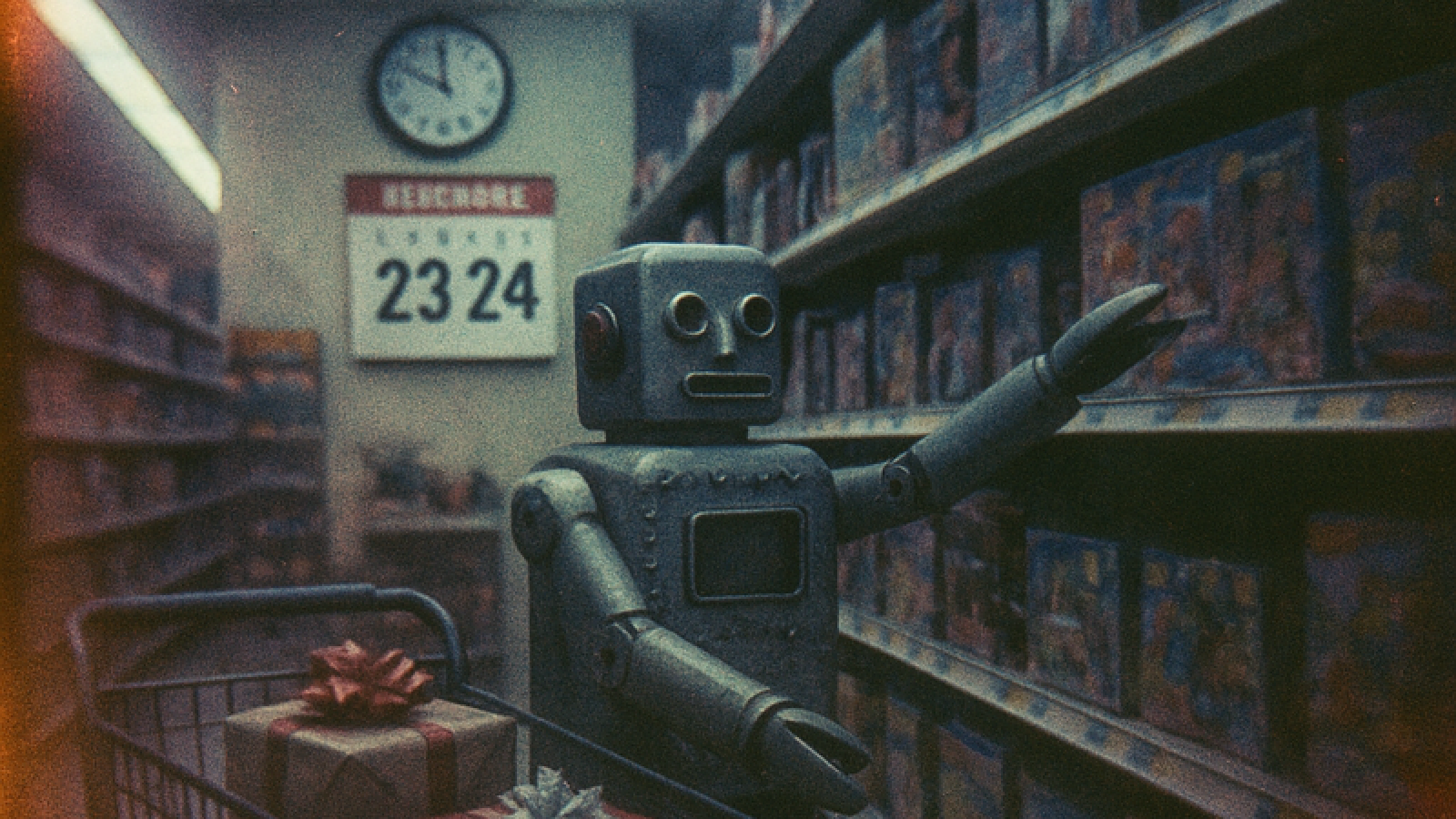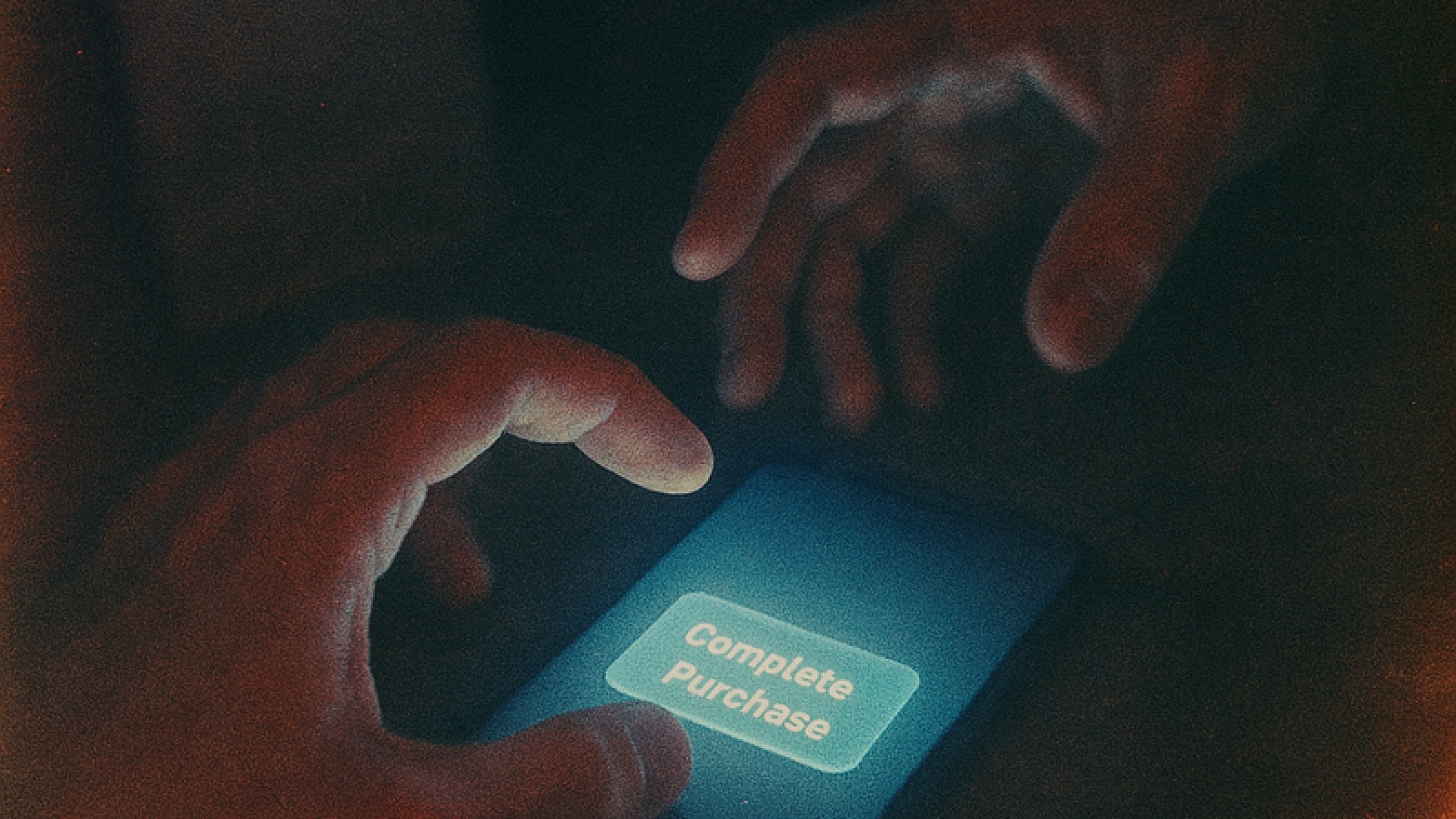How Many AI Agents Will Be Last-Minute Shopping This Holiday Season?

I grew up in the Santa Maria Valley, long before it became famous for BBQ tri-tip and wineries. Both had been around forever, but the region didn't enter the broader social consciousness until Sideways put a spotlight on it in 2004.
What people forget about Santa Barbara County is the produce. In 2024, it generated $2.01 billion in gross revenue from agriculture. That number doesn't shock me. Growing up, we drove past fields of lettuce, cabbage, broccoli, cauliflower, and strawberries everywhere we went.
What did shock me was the rise of Instacart. How could anyone trust a stranger to pick out their produce? Not me. I was the boy who grew up tending summer vegetable gardens and could identify what was growing in a field by sight. The idea of someone else choosing my tomatoes made my skin crawl.
But it's mainstream now. Something I'm not comfortable with is completely normal for tens of millions of people.
Now we're not just trusting humans to pick our groceries. We're trusting apps to do the shopping entirely. Eight days ago, Walmart announced you can buy directly through ChatGPT. We're four weeks from Black Friday.
So here's the question: How many AI agents will be doing last-minute shopping this holiday season? And how fast will people outsource their shopping based on nothing but custom instructions to a bot?
The Infrastructure Is Coming
On October 14, 2025, Walmart announced a partnership with OpenAI that will allow customers to complete purchases directly within ChatGPT using something called Instant Checkout. Timeline: "soon." Scope: probably non-fresh groceries and household essentials at first.
Full rollout details? Unclear.
ChatGPT was already driving significant traffic to retailers before this. In August 2025, nearly 21% of Walmart's referral traffic came from ChatGPT. Over 20% for Etsy. Almost 15% for Target. People asking AI for shopping advice, then clicking through to buy.
Clicking through is still human though. The Walmart thing, if it launches, removes that step.
Target partnered with Perplexity through Shipt. Etsy has something called Instant Checkout. Over a million Shopify merchants coming soon, supposedly. The infrastructure for letting bots shop for us is getting built right now, heading into the biggest shopping period of the year.
Whether it goes live in time to matter for Holiday 2025, and whether anyone uses it if it does—that's the question.
What the Data Shows (And Doesn't)
A bunch of surveys came out in September and October trying to measure how ready people are for AI shopping. The results are messy and contradictory, but some things show up consistently.
About 40% of Americans used AI to help with a purchase in the past year. For Gen Z, 61%. Millennials, 57%. Younger people are already doing this.
But there's a gap between help and autonomy.
70% of people say they're at least "somewhat comfortable" with an AI agent making purchases for them. Sounds good until you see that only 13% have actually done it.
The reasons are obvious. Payment security. Data privacy. What if it screws up. What if I lose control.
People are fine with AI doing research. Brainstorming gift ideas, comparing products, finding deals, reading reviews. But the actual purchase? Most people still want their finger on that button.

The Last-Minute Shopping Scenario
The 13% might change though.
Autonomous agent shopping doesn't make sense for thoughtful gift selection in early November. It makes sense on December 23rd when you forgot someone. At 11 PM on a Tuesday when something needs to ship by Friday. When convenience beats control because you're out of time.
Last-minute shopping is already about compromise. You buy what's available, not what's perfect. You pay for faster shipping. You settle for good enough because the alternative is showing up empty-handed.
That's when someone might actually say, "ChatGPT, find me a gift for my nephew who likes skateboarding, budget $50, needs to arrive by Saturday," and just let it go.
The surveys measured intent when people were calm. We're about to see what happens under pressure.
What We're Watching For
Nobody tracked autonomous AI shopping last holiday season because it didn't exist. It was announced eight days ago and isn't fully live yet.
If it does launch in time, we'll see if that 13% number moves during Cyber Week. Or in the final week before Christmas when people are desperate. Whether younger shoppers, already more comfortable with AI, cross over faster when pressed for time.
Which products people trust to bots. Probably gift cards, generic stuff, things where brand doesn't matter much, anything that needs to arrive fast.
Which tools people actually use. ChatGPT dominates now—93% of Gen Z planning to use AI for holiday shopping expect to use it. But Perplexity has different partnerships. Google has different reach. Amazon keeps Rufus locked inside their walls.
Things shift. Remember nano banana Google? Consumer preference can turn in a week. The tool everyone trusts in November might not be the one they use in December.
What We Can't Know
We don't know what will happen.
The surveys measured intentions in September. Behavior happens in November and December with real money and real deadlines. Those are different things.
Consumer sentiment around AI shifts weekly. New tools pop up. Trust depends on context. Someone might let AI buy paper towels but not jewelry. Trust a $30 purchase but not $300.
That 70% comfort level might evaporate when it's time to hand over payment information. Or the 13% who've done it are just early. Hard to say.
The technical infrastructure is being announced. People say they're comfortable with it. But only 13% have actually handed over control.
Maybe last-minute holiday shopping changes that. Maybe it doesn't. Maybe the capability doesn't even go live in time to find out.
We'll be watching.
Sources
- Walmart Partners with OpenAI - October 14, 2025
- PayPal Survey on AI Shopping - 40% used AI for purchases, Gen Z at 61%
- UserTesting Holiday Shopping Survey - 33% plan to use AI, 64% trust AI as much as friends/family
- Riskified Consumer Survey - 70% comfortable with AI purchasing, only 13% have done it
- Adobe Holiday Shopping Report - 520% increase in AI referral traffic predicted
- Forbes: Walmart and Target Love ChatGPT But Amazon Is Banking On Rufus - ChatGPT driving 21% of Walmart's referral traffic
- Epsilon Pulse Survey - 93% of Gen Z AI shoppers expect to use ChatGPT


Member discussion